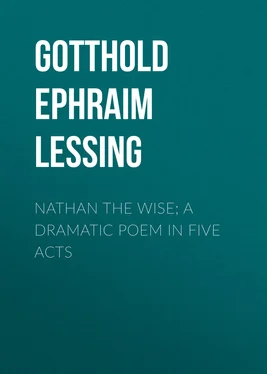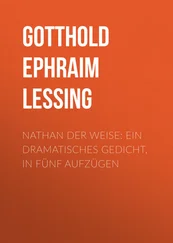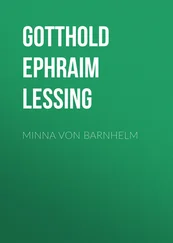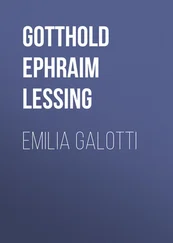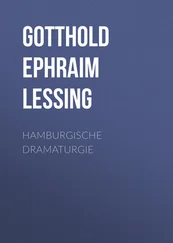TEMPLAR
DAYA
His nation honours him,
As if he were a prince, and yet to hear him
Called the wise Nathan by them, not the rich ,
Has often made me wonder.
TEMPLAR
To his nation
Are rich and wise perhaps of equal import.
DAYA
But above all he should be called the good .
You can’t imagine how much goodness dwells
Within him. Since he has been told the service
You rendered to his Recha, there is nothing
That he would grudge you.
TEMPLAR
DAYA
TEMPLAR
A burst of feeling soon is at an end.
DAYA
And do you think that I, were he less kind,
Less bountiful, had housed with him so long:
That I don’t feel my value as a Christian:
For ’twas not o’er my cradle said, or sung,
That I to Palestina should pursue
My husband’s steps, only to educate
A Jewess. My husband was a noble page
In Emperor Frederic’s army.
TEMPLAR
And by birth
A Switzer, who obtained the gracious honour
Of drowning in one river with his master.
Woman, how often you have told me this!
Will you ne’er leave off persecuting me?
DAYA
TEMPLAR
Aye, persecute.
Observe then, I henceforward will not see,
Not hear you, nor be minded of a deed
Over and over, which I did unthinking,
And which, when thought about, I wonder at.
I wish not to repent it; but, remember,
Should the like accident occur again,
’Twill be your fault if I proceed more coolly,
Ask a few questions, and let burn what’s burning.
DAYA
TEMPLAR
From this day forth, good woman,
Do me at least the favour not to know me:
I beg it of you; and don’t send the father.
A Jew’s a Jew, and I am rude and bearish.
The image of the maid is quite erased
Out of my soul—if it was ever there—
DAYA
But yours remains with her.
TEMPLAR
Why so—what then—
Wherefore give harbour to it?—
DAYA
Who knows wherefore?
Men are not always what they seem to be.
TEMPLAR
They’re seldom better than they seem to be.
DAYA
TEMPLAR
Pray, forbear to make
These palm-trees odious. I have loved to walk here.
DAYA
Farewell then, bear. Yet I must track the savage.
Scene.—The Sultan’s Palace.—An outer room of Sittah’s apartment
Saladin and Sittah, playing chess
SITTAH
Wherefore so absent, brother? How you play!
SALADIN
SITTAH
Yes; very well for me,
Take back that move.
SALADIN
SITTAH
Don’t you see the knight
Becomes exposed?
SALADIN
SITTAH
SALADIN
That’s true again. Then, check!
SITTAH
That cannot help you. When my king is castled
All will be safe.
SALADIN
But out of my dilemma
’Tis not so easy to escape unhurt.
Well, you must have the knight.
SITTAH
I will not have him,
I pass him by.
SALADIN
In that, there’s no forbearance:
The place is better than the piece.
SITTAH
SALADIN
Beware you reckon not without your host:
This stroke you did not think of.
SITTAH
No, indeed;
I did not think you tired of your queen.
SALADIN
SITTAH
Well, well! I find that I to-day
Shall earn a thousand dinars to an asper.
SALADIN
SITTAH
Play the ignorant—
As if it were not purposely thou losest.
I find not my account in ’t; for, besides
That such a game yields very little pastime,
When have I not, by losing, won with thee?
When hast thou not, by way of comfort to me
For my lost game, presented twice the stake?
SALADIN
So that it may have been on purpose, sister,
That thou hast lost at times.
SITTAH
At least, my brother’s
Great liberality may be one cause
Why I improve no faster.
SALADIN
We forget
The game before us: lot us make an end of it.
SITTAH
I move—so—now then—check! and check again!
SALADIN
This countercheck I wasn’t aware of, Sittah;
My queen must fall the sacrifice.
SITTAH
Let’s see—
Could it be helped?
SALADIN
No, no, take off the queen!
That is a piece which never thrives with me.
SITTAH
SALADIN
Off with it! I shan’t miss it.
Thus I guard all again.
SITTAH
How civilly
We should behave to queens, my brother’s lessons
Have taught me but too well.
SALADIN
Take her, or not,
I stir the piece no more.
SITTAH
Why should I take her?
Check!
SALADIN
SITTAH
SALADIN
SITTAH
Hold! not yet.
You may advance the knight, and ward the danger,
Or as you will—it is all one.
SALADIN
It is so.
You are the winner, and Al-Hafi pays.
Let him be called. Sittah, you was not wrong;
I seem to recollect I was unmindful—
A little absent. One isn’t always willing
To dwell upon some shapeless bits of wood
Coupled with no idea. Yet the Imam,
When I play with him, bends with such abstraction—
The loser seeks excuses. Sittah, ’twas not
The shapeless men, and the unmeaning squares,
That made me heedless—your dexterity,
Your calm sharp eye.
Читать дальше
